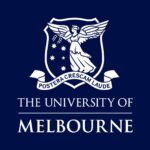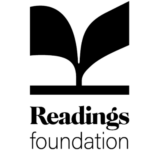Meet the 2024 Hot Desk Fellows
Meet the 22 writers taking part in the Hot Desk Fellowships program in 2024, and read more about their projects.
2024 is the 12th year of The Wheeler Centre’s Hot Desk Fellowships, which provide emerging writers with a space to inspire their process and build a creative community.
The Wheeler Centre will offer twenty-two writers a fellowship, including a $1250 stipend and dedicated workspace in the building over a ten-week period. We look forward to sharing their work with you, both online and in our Next Big Thing reading series, throughout the year.
The 2024 Hot Desk Fellowships are made possible by the generous support of the Faculty of Arts, University of Melbourne, the Readings Foundation and the Just Pretending theatre group.
Meet the writers below, and read a short description of each project.
‘I am honoured to be invited back to The Wheeler Centre as a guest judge for the 2024 Hot Desk Fellowships.
The brilliant shortlist – from literary fiction, magical realism, play to verse novel, essay and more – made for a challenging task of choosing fellows. As a previous Hot Desker who is now privy to the selection process, I was astounded by the boundless talent and skill of writers in this country.
As a fellow, this fellowship made me feel that I was taken seriously in the industry and that the writing I was doing was ‘work’. Being a writer can be a lonely practice, and this fellowship has connected me to a broader community which is atypical to the very act of writing. Congratulations and the very best to you all! ’
– Anneliz Marie Erese, 2023 Hot Desk Fellow and a judge for this year’s fellowships
Chris Ames
Megan Cheong
Jacinta Dietrich
Shashini Gamage
Kate Harris
Ronia Ibrahim
Hugh Leitwell
Suri Matondkar
Lia Morgan
Isobel Morphy-Walsh
Jessie Perrin
Shannon May Powell
Belinda Rule
Al Speers
Andrew Sutherland
Ayesha Mona
Stella Theocharides
Yogashree Thirunavukarasu
Frankie van Kan
Hannah Wu
Cat Yen
Xiaole Zhan
Beginning in 2024, The Wheeler Centre’s Hot Desk Fellowships are generously supported by the Faculty of the Arts, University of Melbourne as part of a new three-year cultural partnership celebrating Australia’s leading literary talents.
The 2024 Hot Desk Fellowships are also made possible through the Readings Foundation and the Just Pretending theatre group.


